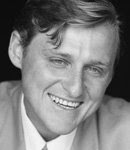In Ego part I, I spoke of how society separates us from our natural instincts and feelings, which denies us access to the most fundamental connection we have with the grace that lives inside us. In this blog I want to talk about what the ego really is, and why having a healthy ego is fundamental to not only our human happiness but our spiritual development.
I've spoken before about how each of us in actually the indivisible divine force manifesting in individuated form. God getting to know itself through the illusion of separation and the diversity of creation. Every being, every flower, every tree and animal are in fact merely different expressions of the one infinite life force. We exist in an interdependence of forms, much the same way that each cell in our body is both uniquely individual and a neccesary part of the greater whole. This is a very useful analogy, as most people realise that each cell has a vital role in their overall wellbeing. The disease of even one cell impoverishes and threatens the wellbeing of the whole system.
Like cells, we each contain within us the entire blueprint of life and yet we each are a specialised expression of that blueprint. Like cells, we each function within our own discreet boundaries, and yet we function as part of a greater whole. Like cells, we need to understand our part in the overall scheme of things, but we also need to maintain our independent identity and function. This is where the Ego comes in. Our ego is the mechanism by which we are able to figure out where we end and others begin. It is the basis of our individuality, which must be maintained for us to function. Without the ego, we would simply experience ourself as the undiferentiated life force, which would render creation rather pointless. The ego does not, as some claim, separate us from God. What it does is allow us to function as an individuated aspect of God, a unique expression of grace.
Also like cells, we each have particular functions, a particular part to play in the grand scheme of things. A brain cell would never consider the idea that it should be a liver cell, or vice versa. They accept their particular role as given, and find joy in the doing of it. Unlike cells, and most other lifeforms, the human being does get a little more choice in matters of function. We bear the gift and the burden of free will, the ability to make choices about our direction in life. This is more limited than most people would like to believe. Each of us has particular tendencies, talents and abilities which suit us for particualr roles. If we use free will to try and fulfill unsuitable roles we generally find ourselves frustrated, unsuccesful and unhappy. Fortunately, if we surrender to the fulfilment of our true roles we discover passion, fulfilment and happiness.
One of the most damaging concepts of the modern world is the idea that you can do "anything at all". If the little skinny guy with the high academic IQ and poor motor skills sets his mind on being a star football player he simply will not succeed. Nor will the jock with limited academic ability be winning the noble prize for science. These would be examples of our ego having become disconnected from reality. A healthy ego is firmly rooted in our organic and spiritual existence. We experience our ego consciously through our 'self concept', our psychological picture of who we are. The degree to which this self concept matches up with the reality of our 'self' (called self efficacy) determines the degree to which we are able to be happy and at peace in our own skin.
Unfortunately, most of us do not get the family and society that naturally leads to the development of a healthy ego. Ego health is a result of unconditional love, positive regard and validation for our unique value as a person. The extent to which others recognise the value of our particular being usually determines the extent to which we form a healthy and loving self concept. Sadly, most people are subjected to environments in which others demand that we try to make our true self fit into a self concept that is foreign and unachievable. Put another way, our identity is meant to develop around our experience of self, not be imposed on us by other peoples expectations and ideas about who we should be.
The first part of the journey of spiritual development is the healing of our ego. Those who try to bypass this stage inevitably end up being dragged back to it, no matter how advanced they may seem to be in matters spiritual and energetic. In fact, many people who try to devlop transcendent awareness without having healed their ego end up in a highly ungrounded state that can lead to insanity. Others end up stuck in a stage of 'spiritual ego', where their knowledge and beliefs outstrip their understanding and development. They talk the talk but are unable to walk the walk. The Kabbalists put this well - "a tree that wishes to grow tall must first put down deep roots, or it will not withstand the storm".
In the next blog I'll be talking about the process of healing our ego's and releasing our damaged self concepts.
Subscribe to:
Post Comments (Atom)




No comments:
Post a Comment
Let me know what you think, tell me your stories.